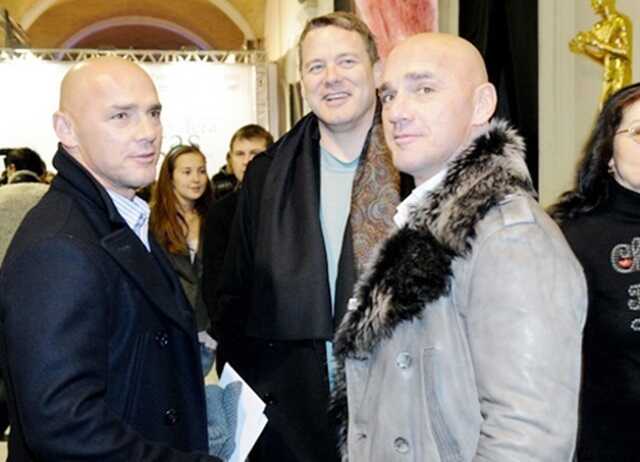
Magadan thugs - from New York to Maidan
Life, death and Donbass "reincarnation" of the odious organized crime group of Oleh Asmakov
Crime boss Oleh Asmakov, better known in the Russian criminal world as Alik Magadan, was killed in Kyiv in March 1999. They say that his body was then frozen in an industrial refrigerator, cut into pieces and buried in different places in the Ukrainian capital. And before that, the group he headed was considered one of the most brutal in the post-Soviet space. The fighters of the "Magadan brigade" are responsible for dozens of contract killings in New York, Kyiv and Moscow, and a serious redistribution of property in Ukraine.
Among Asmakovís "business partners" were not only criminal authorities from the former Soviet republics, but also current politicians. (Among the latter was Ukrainian deputy Vyacheslav Kostyantynovskyi (from Yatsenyukís list), whose direct participation in Asmakovís murder was described in great detail by a member of the Magadan organized crime group "Lyonya Dovhyi" - ed.)
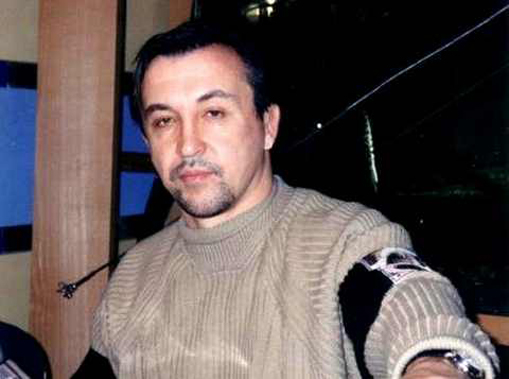
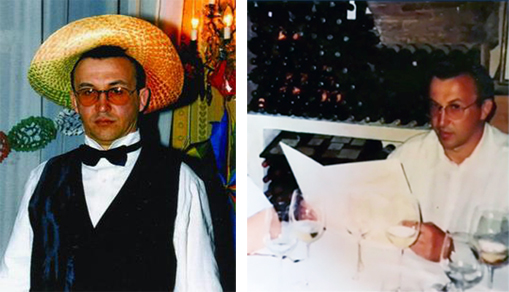
Oleh Asmakov (Alik Magadan)
In July 1992, Senior Border Patrolman Michael Winslow Hartigan was on night duty, a shift that ran from 11 p.m. to 7 a.m. His outpost was in Champlain, a town in upstate New York three miles from the Canadian border.
Hartigan, who had already served for 17 years, was responsible for patrolling that very border: he responded to calls from local residents reporting suspicious people, or when one of the electronic sensors that responded to violators was triggered.
On July 6, an hour before the end of his shift, he received a call from a co-worker who was driving to work and noticed two men walking along Route 11 toward Morris. The highway runs parallel to the Canadian border, through forests and fields, through sparsely populated terrain. It is difficult to meet a pedestrian there.
Hartigan was a five-minute drive from the location. The men readily admitted that they were walking from Canada and had not crossed the border at the checkpoint.
Unauthorized border crossing is a felony, albeit a minor one, and Hartigan arrested the offenders. He first searched them as required, then drove them to his office in Champlain, which was 10 or 15 minutes away.
Hartigan told the men they didnít have to answer his questions without a lawyer, but they didnít ask for one. One said his name was Yuri Gitman, and the other said his name was Alex Time.
After some time, Hartigan will make inquiries and learn that Gitman was connected, in the words of the border guard, with the "Russian-Jewish mafia." In New York, he was known as Yura Kanadsky.
Much later, Hartigan learns that Taimís real name is Oleh Asmakov, or simply Asmak. He was also known as Alik Magadan.
Now, thanks to revelations from former “colleagues,” law enforcement agencies know him as the killer of boxer Oleh Karatayev, whom Magadan shot in the back of the head when he turned away to urinate near the wall of the Brighton restaurant “Arbat.”
In the early 1990s, Magadanís brigade committed a number of high-profile murders and assassination attempts in New York, in particular, on the crime boss Monya Elson at the door of his own home and on his protégé, gasoline dealer Vladimir Zilber, on the Brooklyn Bridge.
According to law enforcement agencies, Asmakovís inner circle included people such as Yura and Sasha Kanadskyi (the Gitmans), Lyonya Dovhyi (Leonid Roytman, who later appeared in court documents in the case of the famous Yaponchik and eventually became Magadanís right hand), Borys Hrihoriev, Oleh Cyclops, nicknamed so because of his different-colored eyes, a quartet of Kyiv wrestlers who worked as waiters at the Metropol: Vyacheslav and Oleksandt Kostyantynovskyi (the Brothers Karamazov) and Ihor and Yuriy Tarasenko (the Tarases), and Leonard Abelis. This was, perhaps, almost the only brigade in which there were three pairs of brothers.
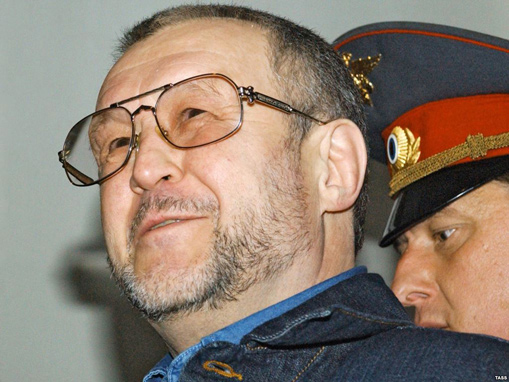
Vyacheslav Ivankov (Yaponchik)
Six months before his chance encounter with Senior Border Patrolman Hartigan, Magadanís men had earned $100,000 by shooting dead a local businessman in Queens, former Kyiv resident Yefim (Jeff) Ostrovskyi. But that day, Hartigan had no idea who had fallen into his hands, and continued to peacefully find out why his captives had violated the state border.
How Magadan was interrogated
Seven years later, prosecutor Jay Musoff would ask Hartigan in Manhattan federal court if he had found out what their citizenship was. It was the 1999 trial of former Metropol restaurant owner Ihor (Jerry) Grafman and his daughter Karina, who were accused of arranging a sham marriage for Magadan to Karinaís American classmate Roxana Kalika. Both were acquitted by a jury.
"Gitman was born in Israel," the border guard said, "and was a Canadian citizen... and Alex Time was born in Russia and was an Israeli citizen."
In fact, Gitman was also born in the Soviet Union (he and Alik had been friends since Magadan, where the future authority was brought from Simferopol by his parents as a child). True, this no longer matters: both are long gone. Gitman was shot in Moscow, and Magadan in Kyiv, where his body was cut into pieces. But Iím getting ahead of myself.
Gitman then told Hartigan that he had gotten into an argument with his girlfriend on the Canadian side of the border, and he and Time got out of her car and accidentally wandered into the United States.
He was lying, of course, but it was theoretically possible: the border, almost 10,000 kilometers long, is so overgrown with trees and bushes in places that it is sometimes impossible to find. A 60-meter clearing was cut through the forests, with border signs sticking out of the ground in the middle, but the International Border Commission responsible for them was only receiving $1.23 million a year from the United States and the same from Canada and was unable to properly take care of all this. Therefore, perhaps Magadan and Gitman never found Podlesnyís treasure in the border forest, but again, weíll talk about that next time.
Time didnít speak any English, and Gitman translated for him. They both said they were heading to New York for a couple of weeks to visit friends and then they were going back to Canada.
Hartigan created a dossier on everyone called the A-File, where the "A" stood for Alien.
"These are the files that will follow them for the rest of their lives," he explained in court. The special folders contain fingerprints, photographs, arrest reports, and descriptions of all the papers found at the time of the arrest. Hartigan made copies of business cards, scraps of paper with phone numbers written down, and other papers that Gitman had, and returned the originals to him, but left the passport in the file.
After questioning, the detainees were taken to the Clinton County Jail, which is located in Plattsburgh, just a half-hour drive from Hartiganís office.
How Magadan was helped by lawyer Zeltser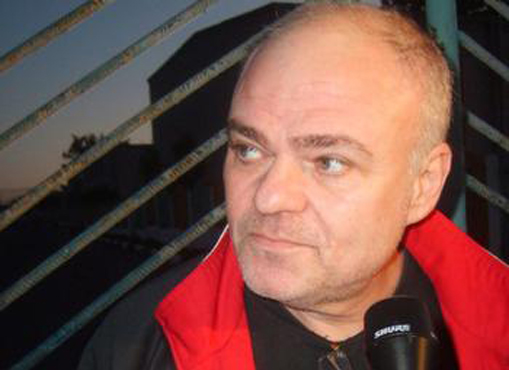
Emmanuel Zeltser
He was rescued from prison in Magadan by lawyer Emmanuel Zeltser, a former Chisinau resident who briefly became famous in 1999 in connection with the scandal surrounding the laundering of Russian money through the Bank of New York. He was subsequently convicted in Minsk for “using knowingly false documents” – forging the will of Badri Patarkatsishvili, but served only half his sentence, since he was personally pardoned by Alexander Lukashenko, who was trying to start new negotiations with the Americans.
In the 1990s, lawyers from the now defunct Inkombank began a lawsuit against Zeltser in New York, accusing him of embezzling millions of dollars. At the same time, it turned out that the defendant had forged a diploma from the Chisinau Law School, so he was a fake lawyer. But after some time, Inkombank went bankrupt, and the litigation was never completed.
And at the hearings of the Magadan and Gitman case, the lawyer then testified that in the summer of 1992, someone from Moscow contacted him (who, he "didnít remember") and asked him to help two gentlemen who had ended up in prison somewhere near Albany (where exactly, he "didnít remember"). So he took up the case of Time and Gitman, from whom he asked for "from 10 to 15 thousand dollars" for the work.
"Why did you ask for that particular amount?" asked Prosecutor Musoff. "It seemed like a reasonable amount," Zeltser simply replied. Zeltserís testimony, which runs to dozens of pages, is remarkable in that almost every answer is prefaced by a lawyerly disclaimer such as "as I recall." I have never seen such testimony before.
Soon Magadan and Gitman were released on bail. Gitmanís wife Nataliya would later testify that the money for the bail was given by Borys Hrihoriev and another person, who, according to the prosecutor, was the owner of the restaurant "Metropol" Ihor Grafman.
How Magadan searched for treasure
There is a version that the former boxer Podlesnyi (also known as Blondin or Alex Yaryi), who is currently serving a long sentence in Canada for murder, in the early 1990s, together with Yuriy Gitman, buried jewelry stolen by Podlesnyi during a robbery of a Canadian jewelry factory in the forest on the American border.
According to this version, Magadan and Gitman tried to dig up the treasure, but never found the place. Everything was obviously overgrown. And if Ottawa and Washington had not been greedy and given more money to care for the border strip, this disaster might not have happened.
On July 6, 1992, Magadan, as far as I know, had already crossed the border illegally more than once, but then he was finally caught. Before I tell you about his short but bloody life, I will finish telling the story of his arrest, which I started with last time.
On January 27, 1999, at the trial of Igor and Karina Grafman, who were accused of arranging a fictitious marriage for Magadan, a prosecution witness, 34-year-old Natalya Gitman, testified.
She said that in February 1992, she met Magadan by chance at a bus station on 42nd Street in Manhattan and took him to her place in Brooklyn, where she lived with her boyfriend, former boxer Yuriy Gitman, who grew up with Alik in Magadan.
As far as I understand, this was Magadanís first visit to the US from Canada. According to Nataliya, his luggage consisted of a small bag of clothes. Magadan lived in the coupleís apartment until July 1992. He did not bring women into the house, and relaxed in the Metropol restaurant several times a week - thatís about it.
In early July, Natalya took Magadan and Gitman to Toronto. She was told that Magadan, who had previously taken the name Alexander Time in Israel (although I also heard the version Tim), needed to extend his Canadian visa and sort out some other matters. They were not asked any questions at the Canadian border: the border checkpoint closed at 12 noon, and they passed through after midnight.
Upon arrival, they first went to the Canadian Immigration Department, and then went to Gitmanís parents. On the way back, 10-15 minutes before the border, Natalya overheard a conversation that she really didnít like. "I realized," she said in court, "that they didnít have permission to return to the United States. I got furious and told them to get out of the car."
The men left and Natalya left. It was about twenty to twelve.
"When you kicked them out of the car, what did you think they were going to do?" asked Prosecutor Musoff. "I didnít care," the witness replied. "Why?" "Because I didnít want to get in trouble." "What do you mean, ítroubleí?" "Well, as I understand it, bringing illegals into the country is a dangerous business."
Natalya reached the American border, where she was asked why there were so many menís things in the car. She said that she was taking them to America for her husband. Having entered the US, she got lost. It was an 8-10 hour drive to New York, and Natalya decided to stay in a motel.
At 7am there was a knock at the door. It was the border guards, who said she was under arrest and ordered her to follow them in a car. Arriving at the outpost, she found Magadan and Gitman there. She was interrogated, Magadan handed her a lawyerís business card, and she was released, but not given the car: the border guards returned all the clothes and other things in the car to her and called a taxi, which she took to the airport and back to New York.
Then, according to her testimony, Borys, whose last name she did not know, and Grafman came to see Natalya. They spoke to the arrested men on her behalf on the phone. Apparently, Magadan and Gitman did not want to expose their numbers and called from prison "collect" only to Natalya, who had already been "exposed". Soon Borys (Hrihoryev) brought her money for bail, and she went to Albany to buy the men out of prison, but discovered that she did not have enough money and called the phone that Hrihoryev had given her. The phone was picked up by a man who, at her request, hastily sent the missing amount via Western Union.
When Magadan was released from prison the next day (this was already in August), he moved in not with Natalia and Gitman, but with Borys Hrihoryev on Bay Parkway, with whom he could more easily discuss their chosen occupation. Hrihoryev, a former Solntsevo militant, was Magadanís trusted man and, in particular, held his money. According to the recollections of his contemporaries, he loved to kill people and sometimes broke out in a rash from excitement.
Since then, Natalya constantly saw them together at the Metropol, which (along with the Arbat) was the favorite place for the Magadan brigade to relax.
Gitman, who was known as Yura Kanadskyi, was far from on good terms with the law, although one source called him "just a small-time speculator." The Izmailovo gang reportedly once sent Magadan money for boxing gear - gloves, helmets, etc. He gave $2,000 of it to Gitman, who blew it on crack. 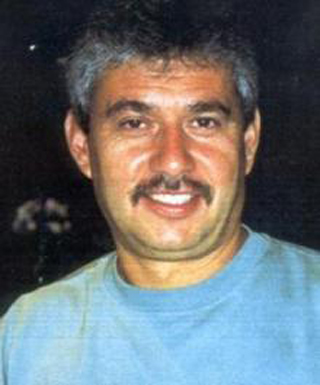
Before Gitman defected to his fellow countryman Magadan, he was in the gang of Monya Elson (pictured) . In 1991, the court documents say, "Elson paid Valeriy Martynchuk to kill Lyubarskyi. In October 1991, Valeriy Martynchuk and Yuriy Gitman were arrested by police near the Odesa restaurant. They were found to be in possession of two pistols, one with a silencer. These weapons were intended to kill Lyubarskyi."
Both failed killers got off with a light fright, although they were supposed to face a decent prison term.
“Under federal law, you get 20 to 30 years for a silencer,” Elson told me a few years ago, when he was still in federal prison. “Because they think: if you have a gun, then screw you, but if you have a silencer for your gun, then it’s considered that you’re an assassin, that you’ve prepared a silencer to kill and so that no one can hear.”
"Thereís a piece of paper in the case that you paid Gitman and Martynchuk for the murder of Lyubarskyi, and they were arrested," I said. "They were arrested," Elson confirmed, "but they were searched illegally. And the fact that they found pistols didnít seem to count. Someone gave money for a lawyer, and they got off scot-free. Martynchuk was given three years probation, he lives his life and doesnít give a damn."
Here, by the way, is another unlikely coincidence. Once, while in Moscow in the mid-1990s, the author of these lines stayed in someone elseís apartment on Butyrskaya Street. After some time, the person who arranged for me to stay there casually noted that the Canadian who stayed there after me had been killed right on the landing.
I was unpleasantly surprised, but had long forgotten about it, but now, while collecting material for a biography of Magadan, I came across a 1996 clipping from the newspaper Segodnya, whose New York correspondent I was.
Here is the text: “On May 30 at 11:35 p.m., police officers who arrived in response to a call discovered the body of its temporary owner, 32-year-old Canadian citizen Yuriy Gitman, on the landing of the fifth floor of apartment No. 11 on Butyrskaya Street in Moscow. He died from several bullet wounds.
Several years ago, Mr. Gitman left for permanent residence in Canada and after some time received citizenship of this country. However, the emigrant did not lose ties with his homeland - Mr. Gitman began supplying Canadian clothing (including leather, down jackets, etc.) to the Russian market. Since the entrepreneur had to visit Moscow often on business, he rented an apartment on Butyrskaya Street with his friend.
That evening, the Canadian businessman, having arrived home, entered the entrance, but the elevator was occupied. Mr. Gitman began to walk up, and when he stopped at the door of the apartment, the killer opened fire from a foreign-made .38-caliber weapon. Four of the five bullets fired hit the target: in the back, chest, and two control bullets in the head. Death was instantaneous. Detectives seized five cartridges from the scene of the murder. According to Mr. Gitmanís neighbor in the apartment, no one threatened the businessman."
The Moscow investigator in charge of the case, Hennadiy Dorokhov, said Gitman emigrated to Canada in 1981 and noted, "He had enemies in Canada, and he tried to hide from them. But, in general, he was one of those people who had enemies everywhere."
According to Elson, the Italian authorities sent the Americans papers showing that he had a hand in Gitmanís death. "They are hinting that Yuri Gitman died in Moscow not without my help, because he could have been a witness for the prosecution," he told me in a 1998 interview. "They say such things! They believe that he was a member of my brigade. And what brigade?!"
I asked about Gitman. “Gitman was such a nimble broom, he was from Canada, from Toronto, and here he was kind of a partisan,” Elson said. “Do you know what it means to be a partisan? He hid a little. What did the partisans do in the forest? They hid.”
“And they derailed trains,” I added.
“He climbed everywhere, where he should and shouldn’t have, and someone got rid of him, that’s all,” Monya Elson simply explained.
Vladimir Kozlovskyi
Kyiv "brother" went to war
Power games of Kostyantinovskyi: from killers at Magadan to patriots under the "roof" of Geletey
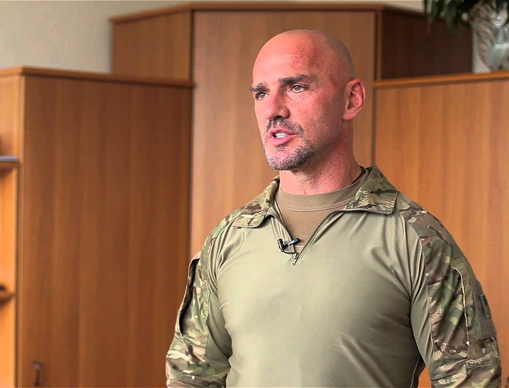
Element of pre-election PR: Yatsenyukís "wallet" Vyacheslav Kostyantinovskyi posed as an "ATO participant"
[...] the Kostyantinovskyi brothers own the Kyiv-Donbas holding and the Kyiv Donbas Development Group company, the Puzata Hata and Carte Blanche restaurant chain, as well as small items such as two residential complexes and a residential building.
As reported by Ukrainian media, millionaire Vyacheslav Kostyantinovskyi “by his own example demonstrates to ordinary Ukrainians how to defend the Motherland” and “not only joined the Kyiv-1 battalion and went to the ATO zone, but is also selling his own Rolls-Royce Phantom to help the guys on the front lines.”
He posted an advert for the sale of the Phantom, which costs a quarter of a million dollars, on the Internet and explained in an interview with AiF Ukr that he was ready to sell it "or exchange it for things our army needs." Later, Vyacheslav Kostyantinovskyi reported that he sold the car to a "conscious citizen of Russia" for 180 thousand dollars, although he himself paid 800 thousand for it. He intends to spend the money he received on treating the wounded, as well as on purchasing equipment and special means for the army... "Schubert" helmets, bulletproof vests, SUVs, night vision scopes for sniper rifles, automotive thermal imagers."
According to Vyacheslav Kostyantinovskyi, he has a "special person who is well versed in military special means." He also said that he and his brother "were on Maidan from the first days," and "in March, in connection with the occupation of Crimea, they created a rapid response group to counter looting — to counter those who were engaged in looting, hiding behind Maidan."
With this group of 50 people, equipped much better than the others, he went to war under the banner of Colonel General Heletey. According to Vyacheslav Kostyantinovskyi, many in the Kyiv-1 battalion did not know who he was, although, according to him, he was fighting with his group. "I work with everyone else," explained Vyacheslav. "If I need to dig a ditch, I take a shovel, if I need to stand at a checkpoint, I will stand, if I need to shoot, I take up arms and go with everyone else."
On the same day that AiF Ukr published an interview with Vyacheslav Kostyantinovskyi, the online edition of the London newspaper Daily Express published an article by its reporter Dion Dassanayeke, “Ukrainian playboy gives millions for war with pro-Russian rebels.” Briefly retelling the content of the Ukrainian interview (which is unrealistic given the time difference between Kyiv and London of minus two hours, but possible with prior agreement), the British journalist himself put a political emphasis, clearly reflecting the opinion of Western media on the events in Ukraine.
"After seven years in America," wrote the Englishman with the non-English surname, "Kostyantinovskyi and his brother returned to Ukraine and built their multi-million dollar empire... The brothers are anti-Russian and in 2006 the Russian mafia allegedly planned to kill them to take over their business. This was revealed after a joint investigation by the FBI and Ukrainian police.
This eventually led to the arrest of suspects Moni Elson and Leonid Roytman in New York. The US Department of Justice considers the arrested men to be "Russian organised crime figures."
The fact that the now obsolete label of the USSR era "Russian mafia" does not apply only to Russians, and is now called "Eurasian", has been talked about and re-talked about, but "Russians" are still used to refer to all people from the territory of the former Soviet Union. Today, few Western general journalists remember that the "Russian mafia" in the United States grew and strengthened during the Brezhnev immigration, which mainly consisted of Soviet Jews, and its criminal core was represented more by Ukrainian and Belarusian than Russian Jews.
However, from Dion Dassanayekeís article follows unimaginable nonsense, as if the "Russian" (read "pro-Russian") mafia, through the hands of its killers - the Odesa Jew Lyonya Roytman and the Chisinau Jew Monya Elson, planned the liquidation of two rich Ukrainian patriotic twins in order to seize their wealth in the same way as Putin seized Crimea.
And here it is time to return to the Ukrainian interview. “I need to shoot,” Vyacheslav Kostyantinovskyi said in it, “I take up arms,” and this was the pure truth. “As children, my brother and I were involved in Greco-Roman wrestling,” he said in another interview. “At the age of 18, my brother and I became masters of sports and earned our own living, traveling to competitions.” This was already a half-truth, since in their youth the brothers were bandits nicknamed “The Brothers Karamazov” and brought this “nickname” to New York, where they did the same in the gang of the late Alik Magadan, aka Oleh Asmakov.
Here is a letter from November 24, 1997 from the first deputy head of the Department for Combating Corruption and Organized Crime of the Security Service of Ukraine, V. Sheremet, in which he thanks the representative of the US FBI in Ukraine "for cooperation in the case of the criminal activity of S. Mohilevych...".
Sheremet wrote that "the security of the commercial structure "Kyiv-Donbas" and the bank "Nadra" is provided by the Kostyantinovskyi brothers - Oleksandr and Vyacheslav, born in 1960, who currently live in Ukraine and are known in the criminal environment as the "Karamazov Brothers", closely associated with the Russian criminal group "Solntsevskaya" (Moscow). The said group is controlled by Mohilevych..."
Here is a letter from February 29, 1999 to the Main Directorate of Ukrainian Military Intelligence from the Head of the Criminal Intelligence Department of the Main Directorate for Combating Organized Crime of the Ministry of Internal Affairs of Ukraine, Colonel V. Kura: "... for the investigation of criminal case No.... it is extremely important to obtain objective and comprehensive information... regarding: Presman Oleksandr, Mohilevych Semen, Uberiya Vakhtang, Rabinovich Vadym, Kostyantinovskyi Oleksandr, Kostyantinovskyi Vyacheslav."
Another document that came into my possession was a report from the U.S. Customs Service (then part of the Treasury Department) issued in November 1997 and marked "For Official Use Only." It was called "A Threat Analysis of Russian-Eurasian Crime Groups," and in the chapter "Front Companies Businesses of Russian-Speaking Organized Crime in the United States" on page 33, it says, among other things: "8. Company X (I will not name it) at such-and-such an address in Brooklyn.
The car registered to this company was used by the group that shot Monya Elson... 9. Company Y in Pennsylvania. Secretary - Vyacheslav Kostyantinovskyi, treasurer - Oleksandr Kostyantinovskyi. Vyacheslav and Oleksandr were members of the group that tried to kill Monya Elson. On July 26, 1993, Monya Elson and his wife Marina drove up to their home in the Sheepshead Bay section of Brooklyn, and when they got out of the car, a brown Oldsmobile pulled up next to them, and a man in a ski mask jumped out with a shotgun in his hands.
"They didnít shoot at Marina and me, they shot us," Monya Elson told me a few years later. "Itís hard to imagine that a woman could survive after that. Before my eyes, she received 17 bullets in the chest, her shoulder was torn apart, her jaw was broken, her chin... They were simply killing me, my wife... You canít imagine what those bastards did then... Thereís a staircase in our house to the second floor and thereís a garbage can there. Marina hid there, and that bastard came up and shot her point-blank..."
Monya was also thoroughly pierced then, and he conducted a private investigation in search of the shooters. "What," he told me about "The Brothers Karamazov" already from prison, "do they want me to watch how they killed Marina before my eyes and for me to swallow it?"
Elson and Roytman were arrested in New York in March 2006 as a result of a joint Ukrainian-American operation, and the then head of the Kyiv UBOP, Colonel Valeriy Heletey, and the head of Ukrainian Interpol, Kirill Kulikov, flew in to arrest both of them.
The former is now the Minister of Defence, and the latter has gone into politics. The indictment claimed that Elson and Roytman hired killers in Kyiv to kill the Konstantinovsky brothers, with Monya doing it out of revenge and Lenya out of self-interest. This plan was under the control of the Kyiv UBOP from the very beginning, and they informed their New York colleagues.
According to Ukrainian media reports of that period and Leonid Roytmanís words in an interview with Vladimir Kozlovskyi and Seva Kaplan, Geletey had long been dancing to the tune of Russian crime boss and former Kyiv resident Semen Mohilevych, was the "roof" of the Kostyantinovskyi brothers and carried out this joint operation with the FBI, luring Roytman and Elson into a trap. There was also information that the Konstantinovsky brothers gave Valeriy Geletey $2 million for this and gave him an apartment.
In November 2006, Roytman pleaded guilty to flying from New York to Kyiv to organize the murders of the Brothers Karamazov, and in December, Elson pleaded guilty to calling there for the same purpose. Leonid Roytman received seven years in prison, and Monya Elson four years, plus two years for violating the terms of supervision for a previous conviction.
Elson claims that after his arrest, Roytman cooperated with the prosecutorís office and told so much about himself that he was offered a compromise sentence of up to 10 years and was given 7 because they could not give him less. In the last of 11 interviews on Russian-language radio, Roytman told host Seva Kaplan that from the very beginning, Elson was sent to him with a microphone in his bosom by the FBI.
"The voice doesnít lie," Kaplan said before this interview, apparently meaning that you can believe a journalist who writes or not, but when a hero goes on air, he may lie, but the journalist has nothing to do with it: you hear a live voice. In such cases, it is customary for a journalist to verify information, or, as they say, "filter the bazaar."
"Monya claims in an interview with Alexander Grant that you turned him in," Vladimir Kozlovskyi told Roytman in December 2010. "Well, thatís a pure lie," Roytman responded. "If Grant has any evidence that I cooperated with the prosecutorís office, let him provide it to the press. Those who cooperate with the prosecutorís office in America donít get paid more than anyone else."
I ignored it at the time, but after Roytmanís 11th radio interview, I contacted attorney James Di Pietro, who represented Elson in his conflicts with federal law. Unlike mere mortals, attorneys donít lie in their statements to the press.
"I represented Monya in several cases," Di Pietro told me, "and he never, not once, cooperated with the prosecutorís office, and in the Elson and Roitman case, I have very good information that Roitman tried to cooperate several times, but he was caught in a lie and his services were rejected, he really wanted to become an informant. Whoever told you that Monya was an agent of the federal services is lying."
Di Pietroís attorney recalled that Elson was charged and tried for conspiracy to murder the Brothers Karamazov because Roitman approached Elson and told him he was part of a gang that tried to kill Monya and his wife Marina. Roitman then told Elson that he had made a lot of money with the Brothers Karamazov that could be had, and if Monya killed them, he would make Monya a very rich man. Thatís how Monya got into all of this. "I know this case in every little detail," James Di Pietro said. "This man is not telling the truth. Any reasonable person would understand that in this case, Monya agreed to plead guilty and go to prison for five years without being a federal agent, otherwise he would not have gone to prison, itís as simple as that."
I asked if it was possible to assume, suggest or claim that Roytman cooperated with the prosecutorís office? "From conversations with prosecutors and my own investigation, I know that he really wanted to cooperate and met about it, but he was caught in a lie and therefore they did not give him a 5-K1 letter, but offered him 7 years," Di Pietro answered.
Letter 5-K1 is written by the prosecutorís office in the event that the accused "provides significant assistance in this case and other cases, and the prosecutorís office asks the court to reduce his sentence." If Monya Elson, as Roytman hints, received such a letter, it should be in the file, and his lawyer would hardly risk his reputation, or even his license, by publicly denying it.
Oleksandr Grant